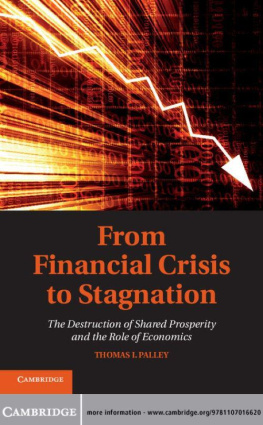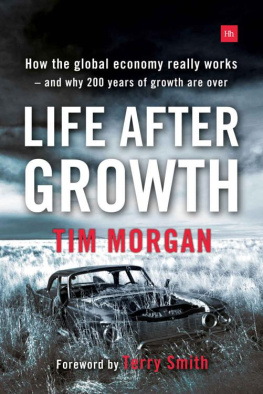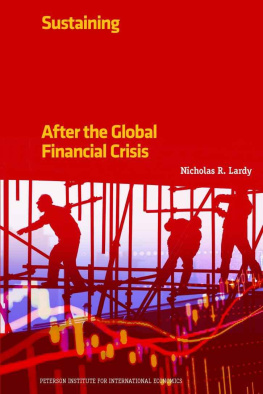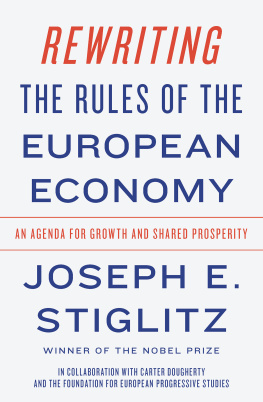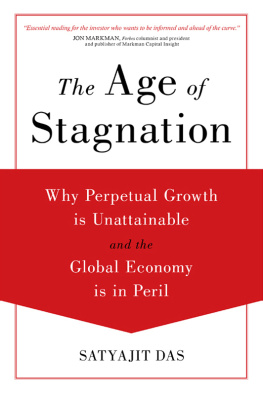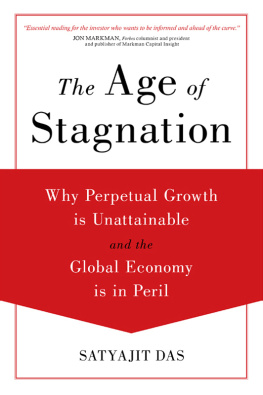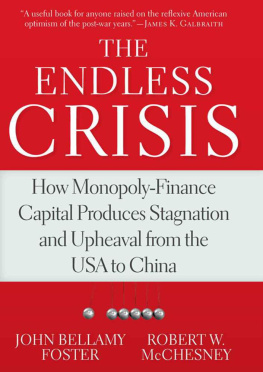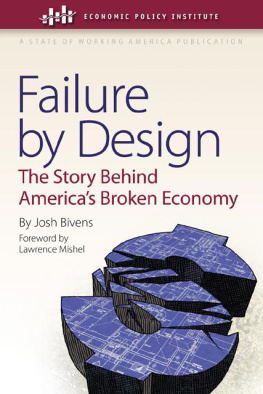From Financial Crisis to Stagnation
The U.S. economy today is confronted with the prospect of extended stagnation. This book explores why. Thomas I. Palley argues that the Great Recession and the destruction of shared prosperity are due to flawed economic policy over the past thirty years. One flaw was the growth model adopted after 1980 that relied on debt and asset price inflation to fuel growth instead of wages. The second flaw was the model of globalization that created an economic gash. Financial deregulation and the house price bubble kept the economy going by making ever more credit available. As the economy cannibalized itself by undercutting income distribution and accumulating debt, it needed larger speculative bubbles to grow. That process ended when the housing bubble burst. The earlier postWorld War II economic model based on rising middle-class incomes has been dismantled, while the new neoliberal model has imploded. Absent a change of policy paradigm, the logical next step is stagnation. The political challenge we face now is how to achieve paradigm change.
Thomas I. Palley is an economist living in Washington, D.C. He is currently an associate of the Economic Growth Program of the New America Foundation in Washington, D.C. He was formerly chief economist with the U.S.-China Economic and Security Review Commission. Prior to joining the Commission, he served as director of the Open Society Institutes Globalization Reform Project and as assistant director of Public Policy at the AFL-CIO. Dr. Palley is the author of Plenty of Nothing: The Downsizing of the American Dream and the Case for Structural Keynesianism (1998) and Post Keynesian Economics (1996). He has published in numerous academic journals and written for the Atlantic Monthly, American Prospect , and Nation magazines. His numerous op-eds are posted on his Web site, www.thomaspalley.com. He holds a BA from Oxford University and an MA in International Relations and a PhD in Economics from Yale University.
CAMBRIDGE UNIVERSITY PRESS
Cambridge, New York, Melbourne, Madrid, Cape Town,
Singapore, So Paulo, Delhi, Mexico City
Cambridge University Press
32 Avenue of the Americas, New York , NY 10013-2473, USA
www.cambridge.org
Information on this title: www.cambridge.org/9781107016620
Thomas I. Palley 2012
This publication is in copyright. Subject to statutory exception
and to the provisions of relevant collective licensing agreements,
no reproduction of any part may take place without the written
permission of Cambridge University Press.
First published 2012
Printed in the United States of America
A catalog record for this publication is available from the British Library.
Library of Congress Cataloging in Publication data
Palley, Thomas I., 1956
From financial crisis to stagnation: the destruction
of shared prosperity and the role of economics/ Thomas I. Palley.
p. cm.
Includes bibliographical references and index.
ISBN 978-1-107-01662-0 (hardback)
1. United States Economic conditions 2009 2. United States Economic policy. 3. Recessions United States. 4. Financial crises United States. 5. Global Economic Crisis, 20082009. I. Title. HC106.84.P35 2011 330.973dc23 2011027047
ISBN 978 1 107 01662 0 Hardback
Cambridge University Press has no responsibility for the persistence or accuracy of URLs for external or third-party Internet Web sites referred to in this publication and does not guarantee that any content on such Web sites is, or will remain, accurate or appropriate.
The U.S. economy and much of the global economy are now languishing in the wake of the Great Recession and confront the prospect of extended stagnation. This book explores how and why we got to where we are and how we can escape the pull of stagnation and restore shared prosperity.
The focus of the book is ideas. Marshall McLuhan (), the famed philosopher of media, wrote: We shape our tools and they in turn shape us. Ideas are disembodied tools and they also shape us.
The underlying thesis is that the Great Recession and the looming Great Stagnation are the result of fatally flawed economic policy. That policy derives from a set of economic ideas. The implication is that avoiding stagnation and restoring shared prosperity will require abandoning the existing economic policy frame and the ideas on which it is based and replacing them with a new policy frame based on a new set of ideas.
This book is very different from other books on the crisis in its placement of ideas and politics at the very core. Existing discussion leaves economics to economists and politics to political scientists. That division results in radical misunderstanding. Ideas are always politically rooted, and that holds especially clearly for economic ideas. Consequently, fully understanding a particular economic idea requires understanding its political roots.
If ideas have political roots, there will inevitably be political opposition to a change of ideas. It is not just economic policy that is politically contested; so too are the ideas that provide the justification for policy. This contrasts with the dominant view among economists, who believe theory is apolitical and politics only enters with policy. That is wrong. Politics is about what kind of theory to use and how to use it (policy), and the idea that the best theory wins is a political fiction pushed by the political winners.
The arguments presented in the book are not complex, but that does not mean they are grasped easily. This is because engrained habits of thought continually reassert themselves, particularly the denial of politics and ideology. As Keynes () wrote in the preface to his General Theory : The ideas which are expressed so laboriously are extremely simple and should be obvious. The difficulty lies, not in the new ideas, but in escaping from the old ones, which ramify, for those brought up as most of us have been, into every corner of our minds (p. viii).
Peeling the Onion of Misunderstanding
It is always difficult to change peoples minds because people like to stick with ideas with which they are comfortable and familiar. That is human psychology. But even when people are open to change, the task of persuasion is difficult and the current task is especially so, being many-layered, like peeling an onion of misunderstanding.
With regard to the phenomenon of the Great Recession, there is a need to offer an alternative explanation. In addition, there is a need to say what is wrong with orthodox accounts, of which there are many.
However, there is a deeper problem. The structural Keynesian account of the Great Recession presented in the book rests on different economic theory. That means there is the prior task of opening readers minds to this different theory.
Even after this, there is a further layer of complexity, particularly with regard to the question of what must be done to restore shared prosperity. Todays dominant economic theory (often referred to as neoclassical economics) is rooted in a social philosophy about the relation of individuals, markets, and society. That social philosophy is neoliberalism, and it is almost impossible to challenge orthodox economic theory and policies without addressing the failings of this social philosophy. Absent an understanding of those failings, readers are likely to be drawn ineluctably back to the neoliberal framing of the economy and prescriptions that are at the root of the problem.

